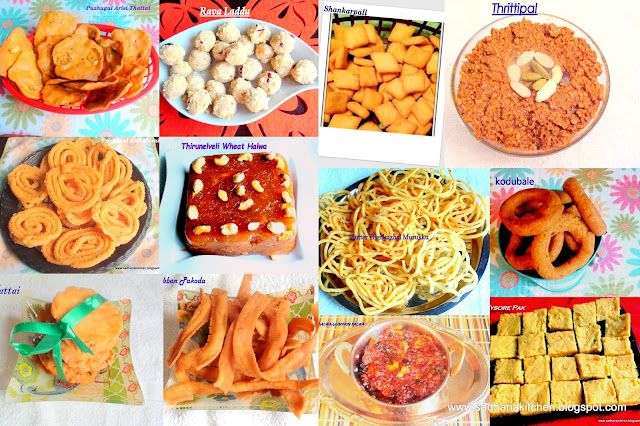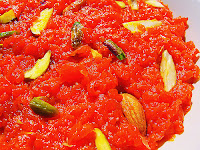Karadayan
Nonbu is a major Tamil festival which is celebrated at the time on Meena
Sankranti . It is celebrated at the moment when Tamil month Maasi
ends and month Panguni starts.. This nombhu is observed by all married women
for the wellbeing of their husband and that the couples should remain together
always. Unmarried women also observe Karadaiyan Nonbu and pray to Goddess Lakshmi
to get good men as their husband
Karadai
is the name of a unique Nivedyam prepared on this day .The puja starts and the
naivedyam is offered to Goddess Lakshmi & Goddess Parvathi,While offering the women chant this
mantra:
"Urugada
Vennaiyum Oradaiyum Naan Tharuven
Orukaalum
En Kanavar Ennai Piriyadirukkanum"
which
means I offer butter and the rice made out of kaara arisi bless me that i live
happily with my husband.
After
performing the puja the Nonbu Charadu is tied around the neck. While wearing
the Nonbu Charadu, women chant this sloka:
"Throram
Krishhnami Subhake Saharithamdharami Aham
Bharthuayushya
Sidhartham Supreethabhava Sarvadha."
After
wearing the sharadu (sacred yellow cotton) the ladies partake of the prasadam
of adai with butter on their leaves.
The
sharadu should ideally not be removed until the next Karadaiyan Nonbu. The tradition of Kaaradayan Nonbu every year
is believed to attain a long married life.
Karadaiyan
Nonbu festival is celebrated with great importance on the Southern states of
Tamil Nadu, Kerala, Karnataka, and Andhra Pradesh.
There
are two types of adai for neivedyam. One is salt and other one is sweet .
Ingredients
Raw
Rice 2 cup
Karamani
(Dried cowpeas) 2 table spoons
Grated
Jaggery 1 cup
Cardamon
powder 1
teaspoon.
Grated
coconut ½ cup
Ghee 2 Teaspoon
Method:
- Roast
the cow peas and soak them in hot water for 4 hours. Cook the cow peas and keep
it aside.
- Heat
one teaspoon of ghee in a pan, fry the coconut and cardamom powder in it. Keep aside.
- Wash
and soak the rice for 1 hour. Drain water and dry the soaked rice in a white
cloth under shade. Dry grind it to a fine powder.
- Roast
the rice flour – stop when it is off white to light brown color& nice
fragrance comes out of it. The consistency should be like the rice powder used
for drawing kolams. Once roasted properly keep the rice flour aside.
- Add
a little water to the jaggery, when jaggery is dissolved well,. Filter it and
allow for boiling. Add the fried grated coconut, fried rice powder and cooked
cow peas.
- Cook
the dough on small or medium flame. Keep stirring until the dough thickens. Allow
dough to cool.
- Now
add remaining ghee in it and make a soft dough ball.
- Roll
the dough into balls. Take some balls and flatten in the form of small circular or disc adais
Make a hole in the
center. The remaining balls are to be shaped into adais.
- Steam
the adais in an idly-cooker or pressure cooker with steamer trays. Cook for 10
minutes. In the case of pressure cooker, cook without putting the weight.
- Now
sweet adai is ready for neivedyam.

Ingredients
Roasted
rice flour - 2 cup
Karamani
(Dried cowpeas) - 2 table
spoons
Grated
coconut ½ cup
Salt To Taste
Water 1 cup
Seasonings:
Coconut
oil 2 Tablespoon.
Mustard
seeds 1 Teaspoon.
Urdh
dhal 1
Teaspoon
Finely
chopped green chilies 2
Tablespoon
Finely
chopped curry leaves 1
Tablespoon
Grated
fresh ginger 1 Tablespoon
Asafetida
(Hing) ½ Teaspoon
Method:
- Heat
the oil in a pan, put mustard seeds, when it spluttered , add the urad
dhal,chillis, curry leaves and the ginger. Sauté' for a few minutes and add the
grated coconut , asafetida and salt.
- Pour
water in it and bring to boil. Reduce the stove heat to moderate.
- Now
add the flour while stirring it in water. Stir well to avoid lumps.
- Cook until mixture leaves the sides and get
thickened, remove from the fire and allow to cool.
- Make
a lemon sized ball from the cooked and cooled batter and flatten in the form of
adais .
- Steam
the adais in an idly-cooker or pressure cooker with steamer trays. Cook for 10
minutes.
- Now
uppu adai is ready for prasadam.



